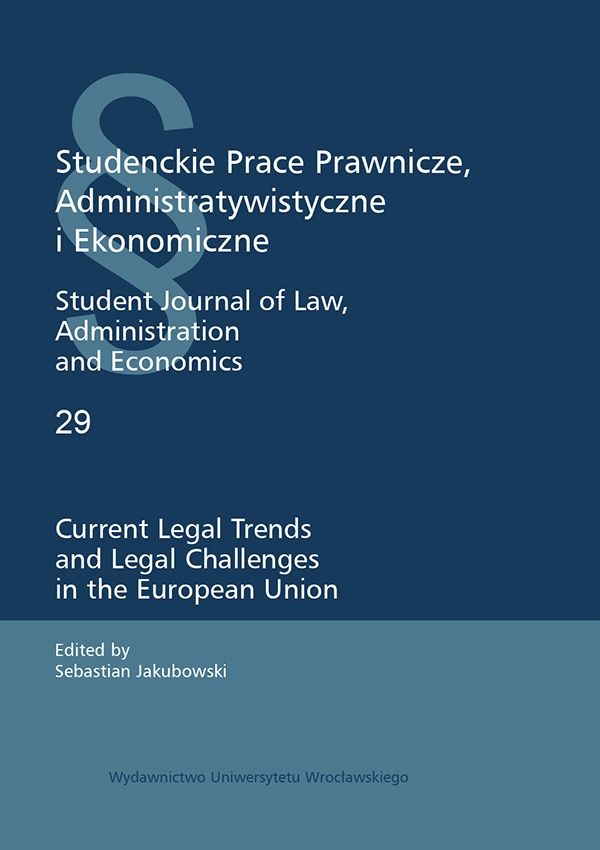

Scientific Articles

A change in the perception of the relationship between the tax debtor and the tax creditor is necessary. The regulation of non-governing forms of operation of tax authorities is the normative basis that determines the change in the way in which tax matters are dealt with. This article reviews the proposal for consensual resolution of disputes contained in the draft of the Tax Ordinance of March 8, 2019. In this draft, a chapter entitled “Tax agreement” was included, which is devoted entirely to the structure of the tax agreement. However, to what extent does the outlined legal structure of the tax agreement make it possible to create a negotiating space between the taxpayer and the tax authority? The consensuality that the parties strive for should foster the pursuit of the private interest in the optimal dimension and, at the same time, should not affect the public interest. This is possible. In this way, the equality of parties manifests itself in the framework of consumer contracts where the entrepreneur’s party is stronger or on the level of repressive law for example, in criminal law — where, as indicated, the consensual way of settling the matter should not disqualify the aspiration to equalize the position of all participants of this consensus. The position defended by the present author is that obtaining a contractual agreement in tax law based on a consensus assuming the parity of parties does not exclude the possibility of pursuing a fiscal interest.
Między konsensusem a „umową podatkową” przewidzianą projektem Ordynacji Podatkowej z dnia 4 czerwca 2019 roku
Konieczna jest zmiana postrzegania relacji dłużnik podatkowy–wierzyciel podatkowy. Regulacja niewładczych form działania organów podatkowych stanowi bowiem podstawę normatywną warunkującą przeprowadzenie zmiany sposobu załatwiania spraw podatkowych. W artykule analizie poddano propozycję konsensualnego rozwiązywania sporów podatkowych zawartą w projekcie Ordynacji podatkowej z 8 marca 2019 roku. W projekcie tym ujęto rozdział poświęcony w całości konstrukcji umowy podatkowej. Na ile jednak zarysowana konstrukcja prawna umowy podatkowej umożliwia zaistnienie przestrzeni negocjacyjnej między podatnikiem a organem podatkowym? Warto, by konsensualność, do której dążyłyby strony takiej umowy, sprzyjała realizacji interesu prywatnego w wymiarze optymalnym i jednocześnie nie godziła w interes publiczny. Jest to możliwe. W taki sposób równość stron przejawia się w ramach umów konsumenckich w których strona przedsiębiorcy jest wyjściowo stroną silniejszą czy na płaszczyźnie prawa represyjnego przykładowo w prawie karnym — gdzie jak się wskazuje, konsensualny sposób załatwienia sprawy nie powinien dyskwalifikować dążenia do zrównywania pozycji wszystkich uczestników tego konsensu. Autorka niniejszego artykułu broni stanowiska, że uzyskanie w podatkach umownego uzgodnienia na podstawie konsensusu zakładającego równorzędność stron nie wyklucza możliwości realizacji interesu fiskalnego.